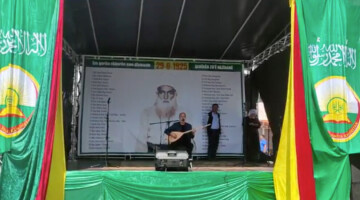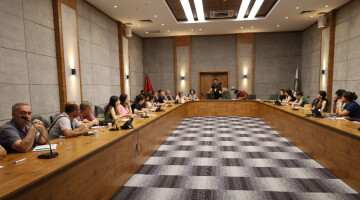Since October 1, 2019, protests against the government in Iraq have continued. At least 545 people were killed and 24,000 injured during the street protests. Some sources put the number of people killed at 600 and the number injured at 30,000.
According to the Human Rights Commission of the Iraqi Parliament, 17 members of the security forces are among the dead. 2,800 people have been arrested during the protests since 1 October. All but 38, who were accused of homicide, have been released according to the Human Rights Commission. 79 people were abducted by unknown persons and have since disappeared. 56 persons who had led the demonstrations were murdered by unknown persons.
Muqtada al-Sadr's attitude in the face of the crisis
Due to the massive protests, Prime Minister Adil Abdul-Mahdi had to resign at the beginning of November. Iraqi President Barham Salih held talks to form a government of Sunni, Shiite and Kurdish representatives. However, none of these meetings yielded any results. In early February, former Iraqi Communications Minister Mohammed Tawfiq Allawi was named as the new Prime Minister and tasked with forming a transitional government. After two weeks of attempted government formation, the influential Shiite cleric Moqtada al-Sadr said: "In the event that the government assigns ministerial posts to representatives of parties, we will overthrow this government within three days”. He calls for the formation of a technocrat government without party representatives.
KDP refuses a government without parties
While various forces support Allawi in forming a government of independent personalities, Fazil Mirani from the Politburo of the Southern Kurdistan’s KDP said: "Nobody should decide in the place of the Kurds. If we don't submit names for ministers ourselves, we can't call these ministers our ministers."
Allawi: Iraq is threatened with collapse
According to Iraqi media reports, Muhammed Allawi warned that a failure of the new government would lead to the collapse of the political system established after 2003 and the collapse of the entire country. This would completely open the door to interference by other states in Iraq's internal affairs, he said.
According to sources close to Allawi, the new Prime Minister has called for unconditional support from the political parties, saying that he would appoint the ministers and reject any interference.
Allawi has reportedly received the support of the political groups in parliament and has promised that early elections will be held and that the demands of the protest movement will be met.
By early March at the latest, Allawi must present the list for the cabinet to parliament.
RELATED NEWS:














